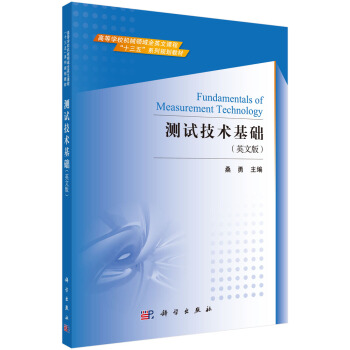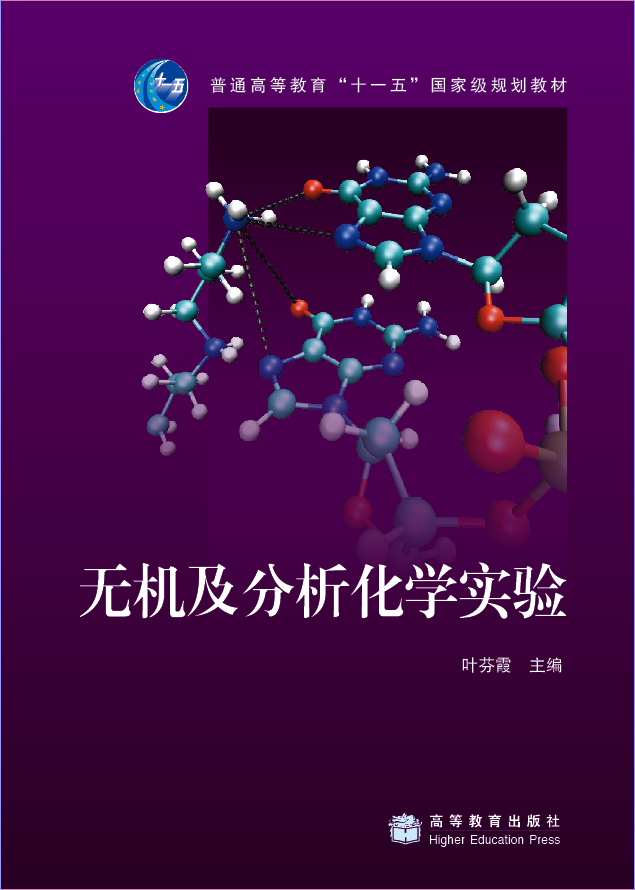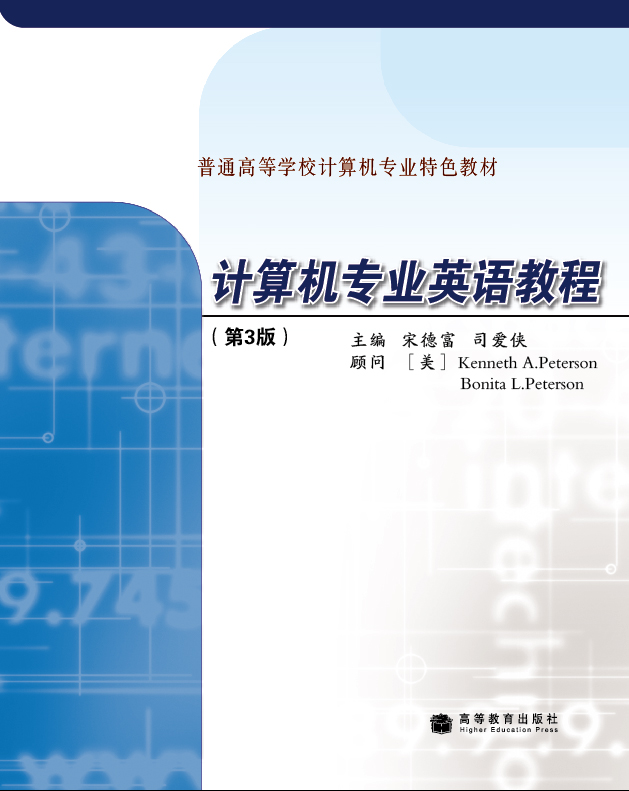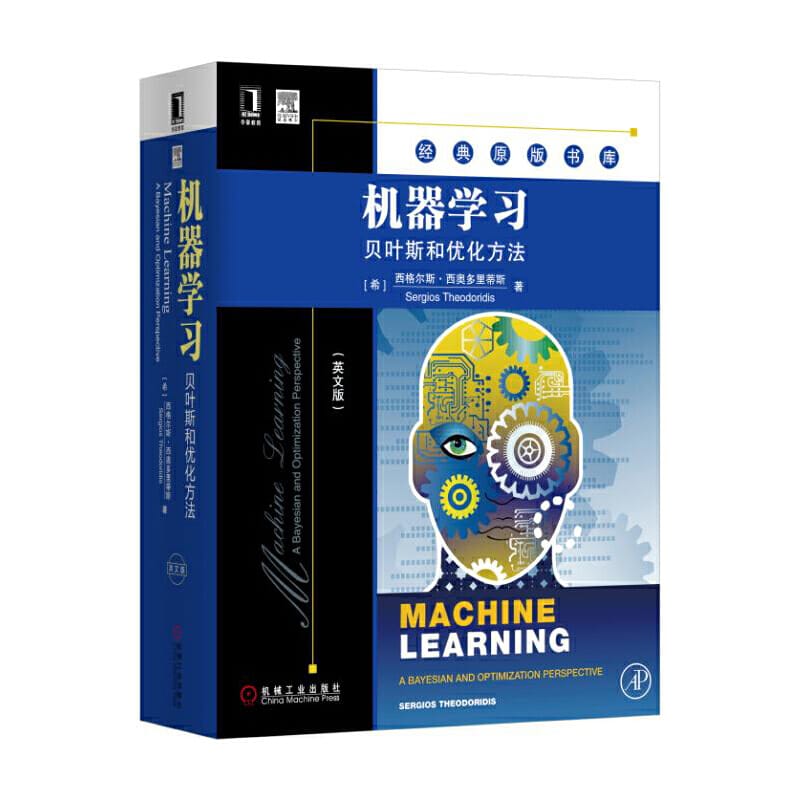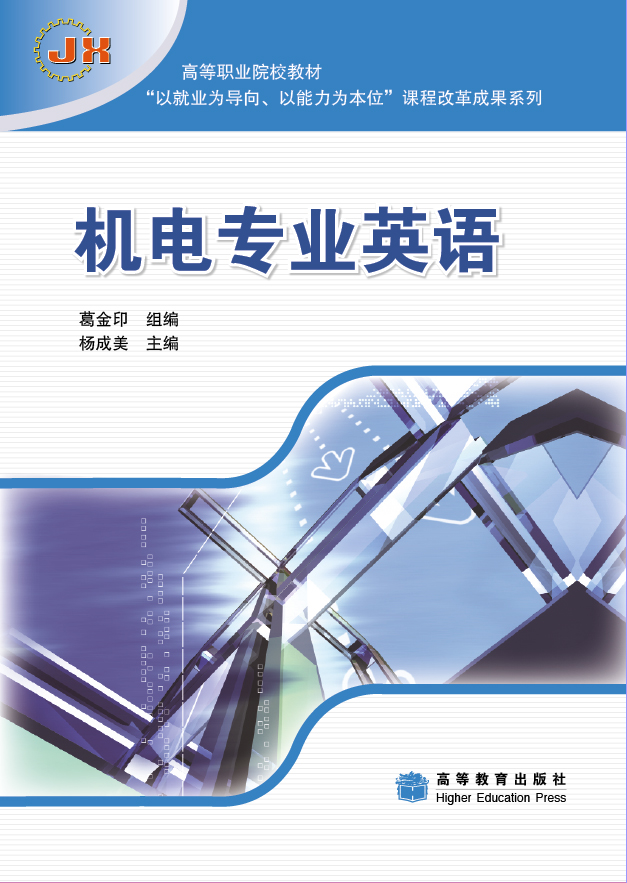- 科学出版社
- 9787030608765
- 1-2
- 318385
- 60261692-2
- 平装
- B5
- 2022-06
- 378
- 300
- 工学
- 机械类
- 机械类、近机械类
- 本科
内容简介
本书采用全英文撰写,旨在帮助学生掌握机械工程领域测试技术的基础知识和基本理论,培养学生具备设计可行测试方案及选用合适传感器的能力。 全书内容包括:测试技术的前沿和新的发展动向,动态测试中描述信号、调理信号、采集信号和显示信号等所采用的技术和手段,测试装置基本特性的评价方法,常用传感器的工作原理等。 本书适用于高等学校机械类专业本科生的全英文或双语教学,也可作为测控、电气、仪器等工程技术人员的参考书。
目录
Contents
1 Introduction to measurement technology 1
1.1 History of measurement technology 1
1.2 Basic concepts of measurement technology 4
1.3 Applications of measurement technology 7
1.3.1 Industrial automation 7
1.3.2 Equipment monitoring 11
1.3.3 Quality performance inspection 12
1.3.4 Building monitoring and security system 13
1.3.5 Home and office automation 14
1.3.6 Other field applications 16
1.4 New trends in measurement technology 17
1.4.1 New sensors 17
1.4.2 Intelligent sensors 19
1.4.3 Virtual instrument 20
1.5 Manufacturers 21
2 General description of signal 27
2.1 Introduction 27
2.2 Classification of signal 27
2.3 Signal synthesis 33
2.4 Fourier decomposition of a sawtooth wave 35
2.5 Spectrum of periodic signal 37
2.5.1 Trigonometric Fourier series representation 37
2.5.2 Exponential Fourier series representation 44
2.6 Characteristics of periodic signal 48
2.7 Aperiodic transient signal 50
2.7.1 Definition of the Fourier transform 50
2.7.2 Properties of Fourier transform 55
2.7.3 Spectrums of typical aperiodic transient signals 61
2.8 Random signals 66
3 Characteristics of measuring systems 71
3.1 Introduction 71
3.1.1 Classification of measuring instruments 71
3.1.2 Description of the characteristics 75
3.1.3 Linear system and its main properties 76
3.2 Static characteristics 79
3.2.1 Accuracy 79
3.2.2 Precision 81
3.2.3 Range or span 81
3.2.4 Linearity 82
3.2.5 Sensitivity 82
3.2.6 Resolution 84
3.2.7 Bias 85
3.2.8 Dead zone 85
3.2.9 Threshold 85
3.2.10 Hysteresis 86
3.2.11 Drift 87
3.2.12 Repeatability 87
3.2.13 Stability 88
3.2.14 Tolerance 88
3.2.15 Error 88
3.3 Dynamic characteristics 88
3.3.1 Types of dynamic inputs 88
3.3.2 Physical meaning of convolution 89
3.3.3 Mathematical description 90
3.3.4 Series connection and parallel connection 102
3.3.5 Mathematical models of the measuring systems 103
3.4 Step responses of measuring system 114
3.4.1 The response of the first order system 114
3.4.2 The response of the second order system 115
3.4.3 Transient response specifications 117
3.5 Nondistortion measurement 120
3.6 Identification of dynamic characteristics 123
3.7 Loading effect 127
3.8 Anti interference technology 131
4 Signal conditioning, processing and recording 135
4.1 Introduction 135
4.2 Bridge circuit 135
4.2.1 Classification 136
4.2.2 Stress and strain 136
4.2.3 DC (Wheatstone) bridge circuit 138
4.2.4 AC bridge circuit 145
4.3 Modulation and demodulation 153
4.3.1 Definitions 153
4.3.2 Amplitude modulation process 154
4.3.3 Frequency modulation 162
4.3.4 Typical applications 165
4.4 Filter 169
4.4.1 Classification 169
4.4.2 Real filter 170
4.4.3 Low pass filter 173
4.4.4 High pass filter 175
4.4.5 Band pass filter 177
4.4.6 Filter bank 178
4.4.7 Typical applications 181
4.5 Sampling and aliasing 183
4.5.1 Sampling 183
4.5.2 Nyquist Shannon sampling theorem 184
4.5.3 Aliasing 185
4.6 Displaying and recording signal 188
4.6.1 Analog and digital display 188
4.6.2 Pen strip chart recorder 189
4.6.3 Circular chart recorder 189
4.6.4 Paperless chart recorder 190
5 Correlation measurement 193
5.1 Introduction 193
5.2 Correlation analysis 193
5.2.1 Correlation coefficient 195
5.2.2 Autocorrelation function 197
5.2.3 Cross correlation function 200
5.3 Spectral analysis 203
5.4 Digital image correlation measurement 204
5.4.1 Introduction 204
5.4.2 Basic principle of two dimensional DIC 205
5.4.3 Applications of two dimensional DIC 209
6 Sensors 211
6.1 Introduction 211
6.2 Temperature sensors 211
6.2.1 Thermocouple 212
6.2.2 Resistance temperature detector 213
6.2.3 Thermistors 216
6.2.4 Integrated circuit temperature sensors 218
6.2.5 Infrared temperature sensors 219
6.2.6 Bimetallic temperature devices 220
6.3 Pressure sensors 221
6.3.1 Strain gauge pressure sensors 221
6.3.2 Piezoelectric pressure sensors 222
6.3.3 Piezoresistive pressure sensors 223
6.3.4 Capacitive pressure sensors 225
6.3.5 Variable reluctance pressure sensors 226
6.3.6 Potentiometric pressure sensors 227
6.3.7 Bourdon tube pressure sensors 228
6.4 Flow sensors 230
6.4.1 Differential pressure flowmeter 230
6.4.2 Turbine flowmeter 233
6.4.3 Vortex flowmeter 234
6.4.4 Thermal flowmeter 235
6.4.5 Doppler ultrasonic flowmeter 237
6.4.6 Transit time ultrasonic flowmeter 238
6.4.7 Laser Doppler anemometer 239
6.5 Displacement sensors 240
6.5.1 LVDT displacement sensor 240
6.5.2 Capacitive displacement sensor 242
6.5.3 Inductive displacement sensor 243
6.5.4 Laser displacement sensor 244
6.5.5 Resistive displacement sensor 246
6.5.6 Ultrasonic displacement sensor 247
6.5.7 Gra
1 Introduction to measurement technology 1
1.1 History of measurement technology 1
1.2 Basic concepts of measurement technology 4
1.3 Applications of measurement technology 7
1.3.1 Industrial automation 7
1.3.2 Equipment monitoring 11
1.3.3 Quality performance inspection 12
1.3.4 Building monitoring and security system 13
1.3.5 Home and office automation 14
1.3.6 Other field applications 16
1.4 New trends in measurement technology 17
1.4.1 New sensors 17
1.4.2 Intelligent sensors 19
1.4.3 Virtual instrument 20
1.5 Manufacturers 21
2 General description of signal 27
2.1 Introduction 27
2.2 Classification of signal 27
2.3 Signal synthesis 33
2.4 Fourier decomposition of a sawtooth wave 35
2.5 Spectrum of periodic signal 37
2.5.1 Trigonometric Fourier series representation 37
2.5.2 Exponential Fourier series representation 44
2.6 Characteristics of periodic signal 48
2.7 Aperiodic transient signal 50
2.7.1 Definition of the Fourier transform 50
2.7.2 Properties of Fourier transform 55
2.7.3 Spectrums of typical aperiodic transient signals 61
2.8 Random signals 66
3 Characteristics of measuring systems 71
3.1 Introduction 71
3.1.1 Classification of measuring instruments 71
3.1.2 Description of the characteristics 75
3.1.3 Linear system and its main properties 76
3.2 Static characteristics 79
3.2.1 Accuracy 79
3.2.2 Precision 81
3.2.3 Range or span 81
3.2.4 Linearity 82
3.2.5 Sensitivity 82
3.2.6 Resolution 84
3.2.7 Bias 85
3.2.8 Dead zone 85
3.2.9 Threshold 85
3.2.10 Hysteresis 86
3.2.11 Drift 87
3.2.12 Repeatability 87
3.2.13 Stability 88
3.2.14 Tolerance 88
3.2.15 Error 88
3.3 Dynamic characteristics 88
3.3.1 Types of dynamic inputs 88
3.3.2 Physical meaning of convolution 89
3.3.3 Mathematical description 90
3.3.4 Series connection and parallel connection 102
3.3.5 Mathematical models of the measuring systems 103
3.4 Step responses of measuring system 114
3.4.1 The response of the first order system 114
3.4.2 The response of the second order system 115
3.4.3 Transient response specifications 117
3.5 Nondistortion measurement 120
3.6 Identification of dynamic characteristics 123
3.7 Loading effect 127
3.8 Anti interference technology 131
4 Signal conditioning, processing and recording 135
4.1 Introduction 135
4.2 Bridge circuit 135
4.2.1 Classification 136
4.2.2 Stress and strain 136
4.2.3 DC (Wheatstone) bridge circuit 138
4.2.4 AC bridge circuit 145
4.3 Modulation and demodulation 153
4.3.1 Definitions 153
4.3.2 Amplitude modulation process 154
4.3.3 Frequency modulation 162
4.3.4 Typical applications 165
4.4 Filter 169
4.4.1 Classification 169
4.4.2 Real filter 170
4.4.3 Low pass filter 173
4.4.4 High pass filter 175
4.4.5 Band pass filter 177
4.4.6 Filter bank 178
4.4.7 Typical applications 181
4.5 Sampling and aliasing 183
4.5.1 Sampling 183
4.5.2 Nyquist Shannon sampling theorem 184
4.5.3 Aliasing 185
4.6 Displaying and recording signal 188
4.6.1 Analog and digital display 188
4.6.2 Pen strip chart recorder 189
4.6.3 Circular chart recorder 189
4.6.4 Paperless chart recorder 190
5 Correlation measurement 193
5.1 Introduction 193
5.2 Correlation analysis 193
5.2.1 Correlation coefficient 195
5.2.2 Autocorrelation function 197
5.2.3 Cross correlation function 200
5.3 Spectral analysis 203
5.4 Digital image correlation measurement 204
5.4.1 Introduction 204
5.4.2 Basic principle of two dimensional DIC 205
5.4.3 Applications of two dimensional DIC 209
6 Sensors 211
6.1 Introduction 211
6.2 Temperature sensors 211
6.2.1 Thermocouple 212
6.2.2 Resistance temperature detector 213
6.2.3 Thermistors 216
6.2.4 Integrated circuit temperature sensors 218
6.2.5 Infrared temperature sensors 219
6.2.6 Bimetallic temperature devices 220
6.3 Pressure sensors 221
6.3.1 Strain gauge pressure sensors 221
6.3.2 Piezoelectric pressure sensors 222
6.3.3 Piezoresistive pressure sensors 223
6.3.4 Capacitive pressure sensors 225
6.3.5 Variable reluctance pressure sensors 226
6.3.6 Potentiometric pressure sensors 227
6.3.7 Bourdon tube pressure sensors 228
6.4 Flow sensors 230
6.4.1 Differential pressure flowmeter 230
6.4.2 Turbine flowmeter 233
6.4.3 Vortex flowmeter 234
6.4.4 Thermal flowmeter 235
6.4.5 Doppler ultrasonic flowmeter 237
6.4.6 Transit time ultrasonic flowmeter 238
6.4.7 Laser Doppler anemometer 239
6.5 Displacement sensors 240
6.5.1 LVDT displacement sensor 240
6.5.2 Capacitive displacement sensor 242
6.5.3 Inductive displacement sensor 243
6.5.4 Laser displacement sensor 244
6.5.5 Resistive displacement sensor 246
6.5.6 Ultrasonic displacement sensor 247
6.5.7 Gra

